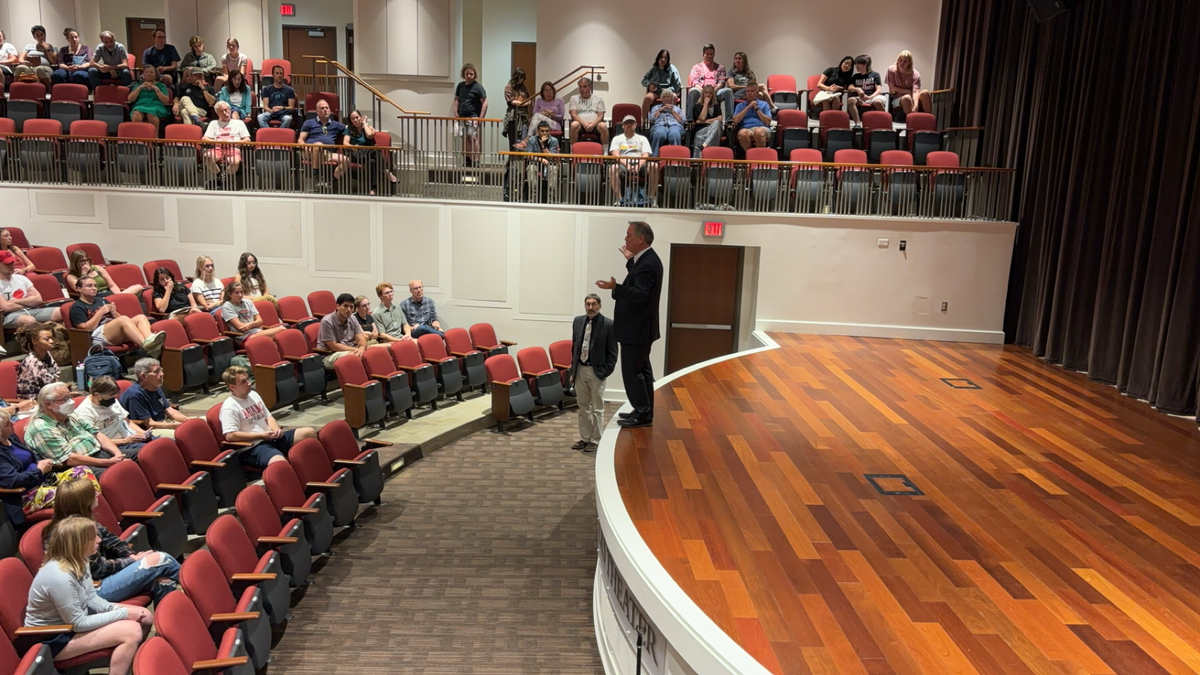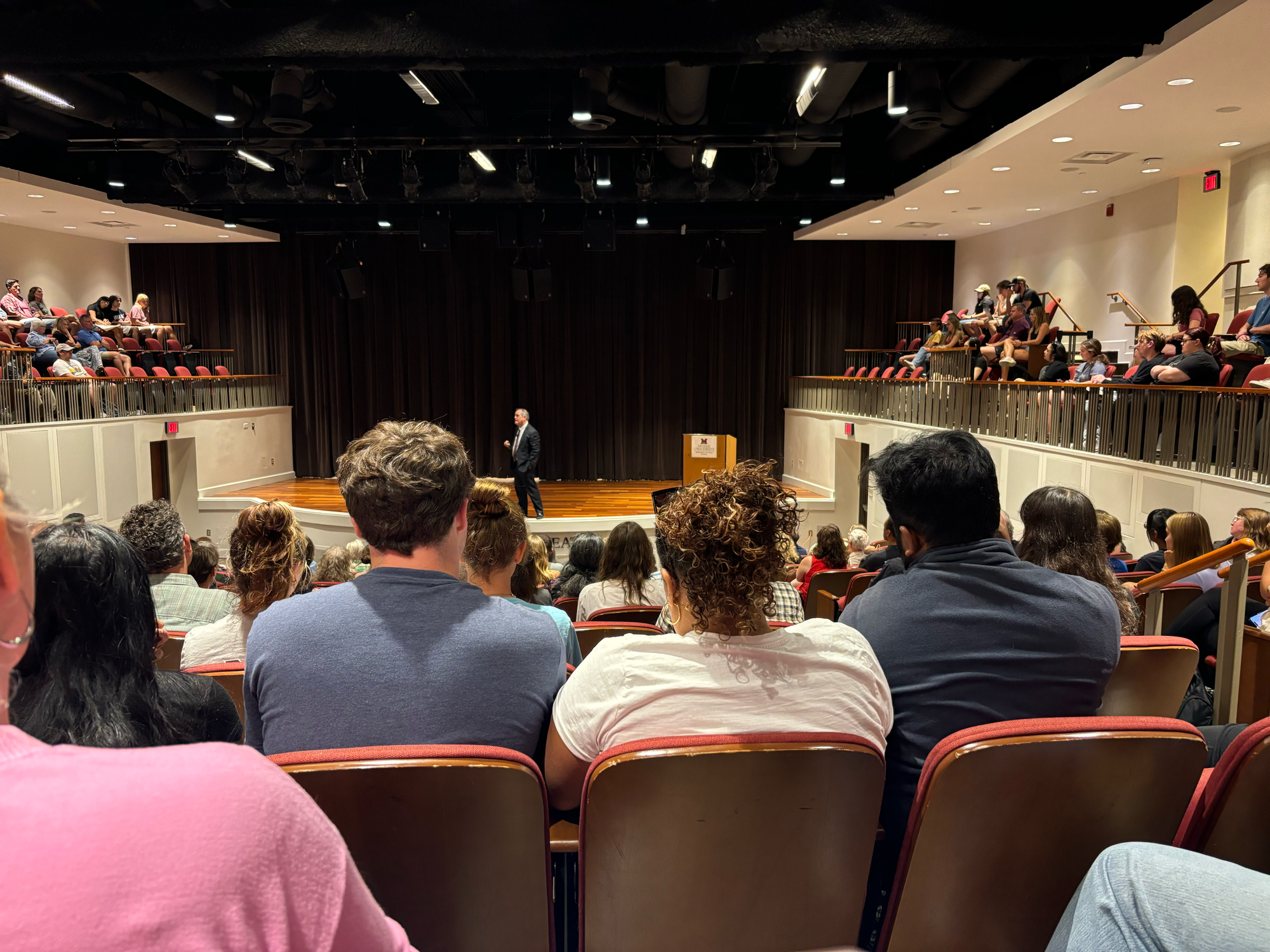Environmental lawyer speaks about forever chemicals during Miami lecture
Environmental Rob Bilott spoke to students and community members about dangerous chemicals impacting communities across the globe.

Cincinnati-based environmental attorney Robert Bilott delivered this year’s Willeke lecture at Miami University on Sept. 11.
Bilott is known for his involvement in the case against the DuPont chemical company after residents in West Virginia were found to be drinking water contaminated with polyfluoroalkyl substances (PFAS). Bilott wrote a book called “Exposure: Poisoned Water, Corporate Greed, and One Lawyer’s Twenty-Year Battle against DuPont.” In 2019, his story was adapted into a film, “Dark Waters,” starring Mark Ruffalo as Bilott.
The Gene and Carol Willeke Frontiers in Environmental Science Lecture series has previously hosted speakers like Jonathan Foley, Executive Director of Project Drawdown, and Mustafa Santiago Ali, an environmental justice activist. Bilott delivered this year's presentation, marking the 17th annual Willeke lecture.
This lecture series is in collaboration with Miami’s Institute for the Environment and Sustainability.
Oxford has its own history with PFAS. The city is part of a sweeping class-action settlement with 3M, a Fortune 500 company, to cover the costs of testing for PFAS, which the city has detected in small amounts in some of its water. These chemicals are unable to break down on their own, causing them to be dangerous to both the environment and people.
During the lecture, Bilott discussed his educational background and how he got involved in environmental law. Despite having no interest in science after high school, he took a class at the Ohio State University Moritz College of Law with a focus on environmental law and found it fascinating. From there, he started his career in environmental law.

Bilott said during the lecture that he first got involved in the DuPont case when he got an angry phone call from a man by the name of Wilbur Tennant about his cows falling ill and dying. His farm was located next to a landfill, which was operated by DuPont. There was a pipe in the landfill that flowed into the creek Tennant’s cows drank from, and from the pipe came a foam.
Bilott filed a lawsuit against DuPont which gave him access to documents. He said that DuPont sent boxes of their documents which later led to his discovery.
“Those documents revealed that there was an incredibly toxic, persistent, bioaccumulative, cancer-causing chemical in that water, in that foam that wasn’t even listed on any of the permits,” Bilott said.
The chemical ended up in the bloodstream of workers and others who had been exposed. Not only were these chemicals present, the human body had no way to get rid of them.
The chemical ended up making it into the water supply of tens of thousands of people and no one knew about it, so Bilott filed a lawsuit against DuPont on behalf of the entire community. Later, the EPA sued DuPont because they had information on the issue.
Bilott continued on to tell the rest of the story of his involvement with the case and its results, talking about the film, his book and a documentary.
“If you look at what we’re confronting now, yes, this is a big problem. It’s global contamination on an unprecedented scale,” Bilott said. “But I think if anything, this story shows that it’s also … a great story of optimism here, because it shows the power of individuals being able to stand up, speak out and put into motion incredible change.”
Doris Schnetzer was invited to the lecture as a graduate of the Western Program at Miami. She had been invited to other events in the past, and told them to invite her back when the lecture had to do with the environment.
“I think Mr. Bilott’s integrity and thoroughness in the work that he did is inspiring, and I hope a lot of people were inspired by him,” Schnetzer said. “More people need to go into fields that help the environment … it’s important that people get involved at all levels, including legally.”
Many lectures hosted by Miami are open to Oxford residents. To view upcoming events, visit the university’s calendar at events.miamioh.edu.




